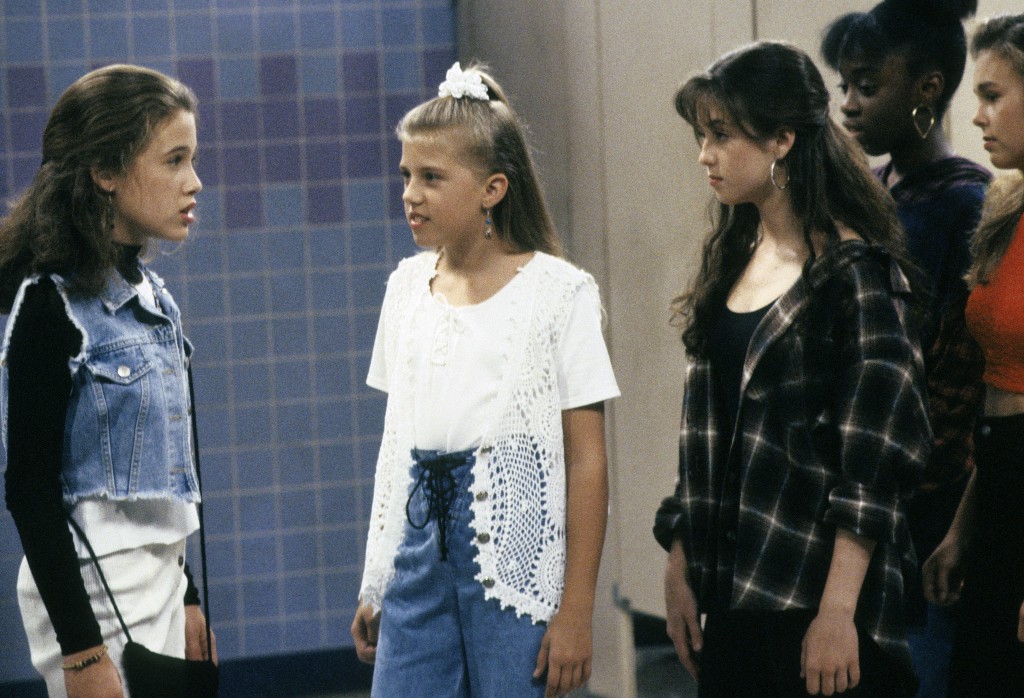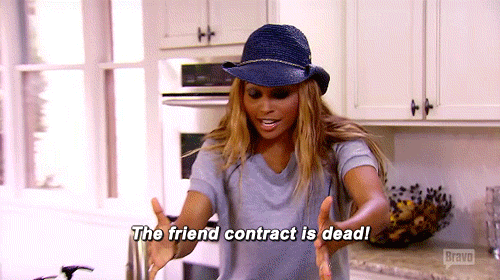Scientific Proof You Need To Ditch Your Toxic Bestie

Because Gia and Stephanie were NEVER #BestieGoals.
As kids, we had no problem letting anyone know that she or he wasn’t our friend anymore. You’d stop playing, cry and wait until your parents finally picked you up. You typically made up within 24 hours because you missed playing with that friend. This happened so much, SpongeBob SquarePants had a whole episode dedicated to this phenomenon, in which SpongeBob and Patrick made up at a wrestling match in the end.
As an adult, you’ll continue to butt heads with your friends. But instead of arguing over who gets to pretend to be the pink Power Ranger, you argue about your personal politics and other ~adult~ problems. After some arguments with your bestie, it may seem like the two of you are never on the same page anymore and it’s harder to make up. You even start to wonder why you became friends with this person in the first place.
According to Psychology Today, this is normal. Toxic friendships can reveal themselves via two different red flags: intuitive flashes and actual toxic behavior. These are the things that make you wonder why you became friends with this person and why she or she has been in your life for so long.
The first red flag — intuitive flash — occurs when you have a gut feeling, knowing that something is wrong. They’re those “I should’ve known better” moments.
The second red flag, toxic behavior, depletes your happiness. It’s when you recognize that this person doesn’t truly add any positivity to your life. They cling to your companionship like a leech.
Then you think about it: This person has never really been, by definition, a “good friend.” They only want to hang out when it’s convenient for them, they try to force you to do things you’re not necessarily into, they bad-mouth others you’re close to and they have a spirit of competition to them. Overall, it’s frustrating, but you genuinely love them and want the best for them.

On one hand, you’ve had this friend forever — you feel like they’ve seen you through the good times and bad, and you’ve told them all of your secrets. On the other hand, they’re just not in the same place as you. Often, you’ll decide to be the bigger person for the sake of your friendship. You’ll think, “It can’t hurt that much, right?” Wrong.
You can’t just brush your problems under a rug.
In a true friendship, no person should have to act as the “bigger person.” You should be able to directly address any issue with your friend. You can’t just brush your problems under a rug — they’ll build up until things become unresolvable.
Address your issues and concerns head on — you’ll thank yourself for this later. Be aware that not everyone will be willing to receive constructive criticism.
Handle your disagreements with maturity. Both parties should hear each other out without interjecting their own opinions. Once you and your friend have each had your say, you should work towards coming to a civil agreement.
In some cases, though, this is just wishful thinking, and the “mature argument” model goes completely out the window, causing even more tension.
When this happens, you might be tempted to—you guessed it—“be the bigger person.” But sometimes, it’s helpful and healthy to recognize when enough is enough.
Do no harm but take no crap.
When you’re finally ready to stick up yourself, bring to your bestie’s attention the issues that have been bothering you. Be frank — you’re unhappy and want to try to move forward together, but have no problem parting ways if things don’t start changing. You never have to say how you’re feeling in a harsh way, but you should make sure the person understands that you really mean business.
In the end, you’ll thank yourself for sticking up for your values (and your sanity) by addressing these issues. It may seem like you’re losing a big part of yourself, but realize that this is just the beginning of a more positive lifestyle.
